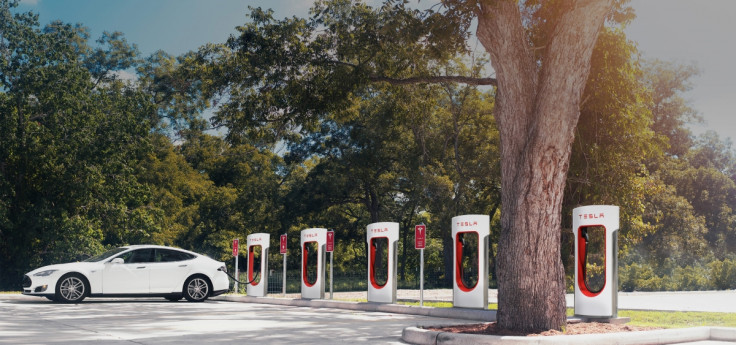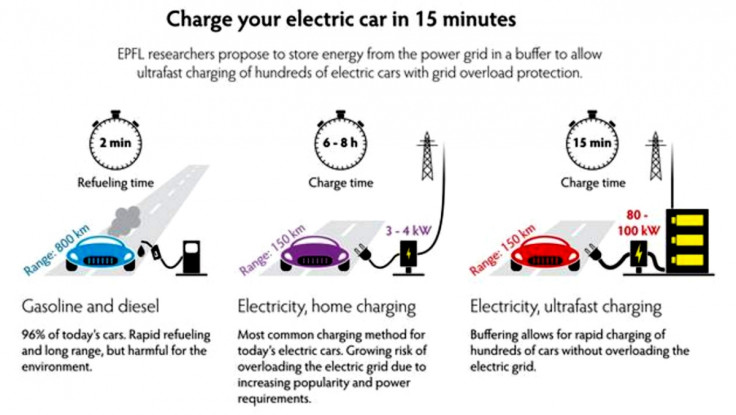Electric cars could be charged in just 15 minutes using new intermediate storage system

Swiss scientists have developed an innovative charging station system that is able to drastically cut down the charging time for electric cars from eight hours down to just 15 minutes, which is currently not possible.
Researchers from Ecole Polytechnique Federale de Lausanne (EFPL), which is the Swiss Federal Institute of Technology, have developed a new charging station system that is able to charge electric cars with a whopping 4.5MW of power in just 15 minutes.
Currently, there are several different ways of charging an electric vehicle, which range from slow to fast, and also depend on what sort of car you have. If you have a Tesla, you can use a Tesla supercharging station at 120kW that can charge your car to 80% in 40 minutes by routing DC power directly to the car's battery through multiple chargers working in parallel.
However, if you don't have a Tesla, you will need to rely on rapid charging, fast charging or slow charging. Rapid charging is offered by public charging stations at 43-50kW that can provide an 80% charge in 30 minutes converted into either AC or DC power, while fast charging is offered at public charging stations at 7-22kW, which is enough to recharge some electric car models within three to four hours.
And of course, there is the slow charging method that you can do at home, where you plug your car into a standard home wall plug socket at 3kW and leave it to charge for between six to eight hours.
The problem is that all of these methods of charging are still much slower than the length of time it takes to full up the tank of a diesel car with petrol, so while it takes only 1.5 minutes to fill up a diesel car so that it can run for 1,000km, the same amount of time would only charge an electric car to run 6km.
How the charger system works

The researchers believe that electric cars will only become a competitive alternative to diesel cars when they can be charged quickly, so they developed a demonstrator charging system which contains a lithium ion battery the size of a shipping container.
If a regular charging station was to draw 4.5MW of electricity –equivalent to roughly 4,500 washing machines going at once – in one go, it would bring down the entire power grid, so the researchers developed a buffer system that is constantly charging at a low voltage around the clock from the grid.
When cars turn up to be charged, the buffer storage system disconnects from the grid and then provides the car with the 20-30 kWh needed to charge the electric car battery in just 15 minutes, enabling the car to run for 150km. And although that is still much lower than the distance a diesel car can go, it's a good start.
The researchers also ran a simulation to see how much electricity a charging station would need if it were to charge 200 cars per day, and found that the charging system's battery would need to have an intermediate storage capacity of 2.2 MWh.
"Our aim was to get under the psychological threshold of a half hour. But there is room for improvement," said Massimiliano Capezzali, deputy director of EPFL's Energy Center, who coordinated the project. "Electric cars will change our habits. It's clear that, in the future, several types of charging systems – such as slow charging at home and ultra-fast charging for long-distance travel – will co-exist."
© Copyright IBTimes 2025. All rights reserved.






















